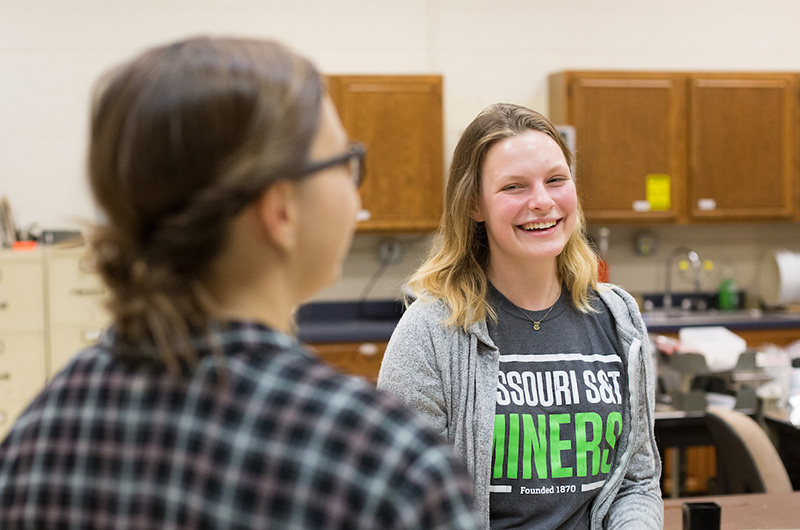General Information
Experiential learning at Missouri S&T refers to learning stimulated by a variety of structured activities that differ significantly from the traditional lecture format. Experiential learning activities are designed to require you to go beyond mastering basic skills and knowledge in the application of that material to problem solving challenges. These activities involve collaboration and reflective learning and allow students to learn in environments that align with their aptitudes.
Experiential Learning Requirements
The Department of Earth Sciences and Engineering (ESE) requires each undergraduate student in Geology & Geophysics, Geological Engineering, and Petroleum Engineering to complete an experiential learning activity appropriate to the student’s course of study. This document specifies the department’s implementation of the Missouri S&T Undergraduate Experiential Learning Standard & Operating Procedure approved by Faculty Senate on April 17th, 2014 as follows:
- Activities must be university sponsored or affiliated.
- Academic advisors will ensure that activities are of sufficient duration, intensity and rigor to demonstrate successful applications of learned principles appropriate to the expectation of the degree program.
- Focus will be on creative and innovative activities that fall outside the realm of the traditional lecture classroom experience and contribute significantly to professional and personal development.
- Activities in university design teams and organizations must be confirmed by their respective faculty advisors.
- Each student will be required to write a summary reflection essay that documents the experience(s) from the student’s perspective and submit the essay to his/her academic advisor.
Examples of Activities
- Approved courses that require students to go beyond mastering basic skills and knowledge in the application of that material to problem solving challenges: GEO 4097 (Advanced Field Camp); GEO ENG 2407 (Geology and Engineering of Ancient and
Modern Peru); GEO ENG 5092 (International Engineering and Design)
- Undergraduate research (OURE projects, NSF Research Experience for Undergraduates, Honors Academy senior research project, etc.).
- One semester of study abroad.
- Co-Op, summer internship and externship in industry or at a research center.
- Significant participation on a student design team.
- Leadership positions within student governing boards (Student Council, Student Union Board, PanHellenic Council, Greek Chapter Executive board, Residence Hall Association, National Residence Hall Honorary, Residence Hall Executive Board, Cultural Activities Planning Committees, Student Judicial Boards, Student Athlete Advisory Committee).
- S&T sponsored service learning (Engineers without Borders, Miner Challenge, Humanitarian Engineering and Science Minor, Global Studies Minor, etc.)
- Year-long leadership involvement experiences (Global Leaders Institute, Chancellor’s Leadership Academy, Student Leadership Conference Chair, University Innovation Fellow).
The above referenced instructors/advisors/supervisors will notify the ESE administrative assistant about students who complete experiential learning requirements. The administrative assistant will track them and periodically send S&T’s Undergraduate Studies Office a list of B.S. in Geology & Geophysics, Geological Engineering and Petroleum Engineering students who have met all their experiential learning requirements.
Experiential Learning Activity Approval Form


Follow Earth Sciences and Engineering